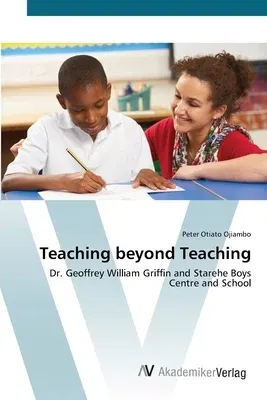Revision with unchanged content. This book investigates the relationship
between a given individual's life experiences and how those experiences
determine, shape, and impact on his society. Specifically, it examines
the role of Geoffrey William Griffin in the evolution and growth of
Kenyan education. It uses leadership and relationality theories to
interpret his involvement in Kenyan education. In this exploration, the
study seeks to gain an understanding of the person of Griffin,
identifies and examines forces that accounted for his involvement in
Kenyan education and interprets how his establishment of Starehe Boys
Centre reflects Kenya's educational history. It further examines his
insights on the purpose of education and effective management of
educational institutions. Methodologically, the book uses qualitative
inquiry approach and is designed as an interpretive educational
biography. Overall, the study argues that individual educators play a
significant role in the process of social change. Their study
illuminates complex historical, social, political, and economic contexts
of their societies. This is a must book for courses on educational
biography, administration, leadership and curriculum. It is a valuable
resource for all stakeholders in the education process, researchers
engaged in educational thought, theory, and practice, colonial, and
post-colonial Kenyan and African educational history.


